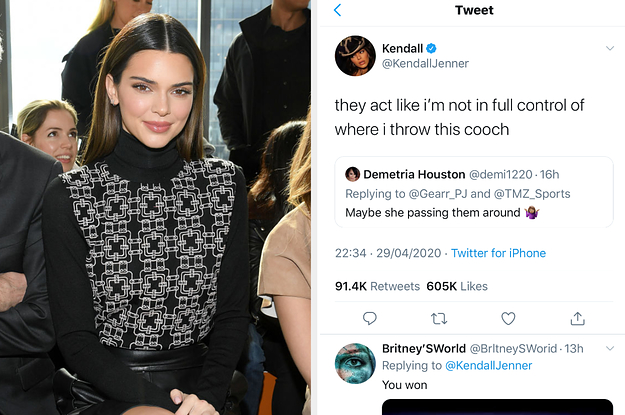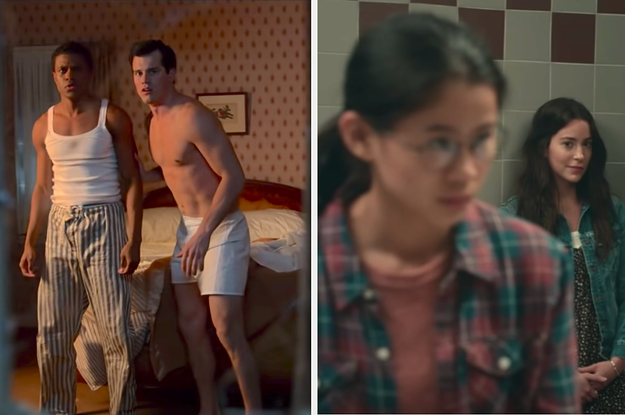Month: April 2020
“We put a bunch of glitter in the air vents of my brother’s getaway car and turned the air conditioner on high.”
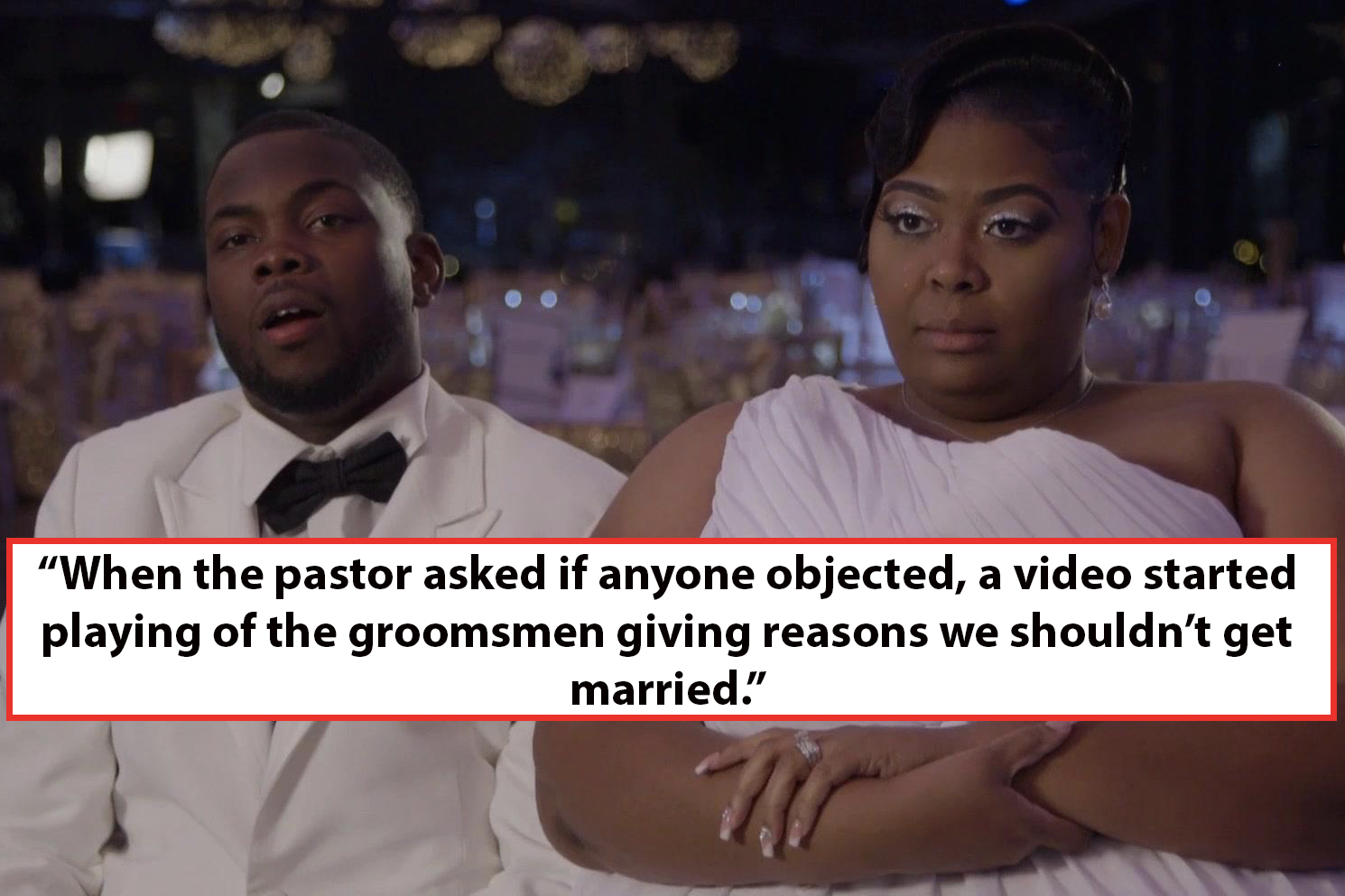
Recent research suggests that summer conditions can help kill the coronavirus more quickly. But “don’t expect miracles,” one scientist said.


Travel needs to be about more than just a basic want, especially now. It needs to have meaning. At least that’s how The Explorers Club — a group founded in 1904 to support the scientific exploration of land, sea, air, and space through education, research, and travel — sees it. The club’s membership boasts the biggest names in science and exploration, from Jane Goodall to Neil Armstrong, Buzz Aldrin to Sir Edmund Hillary, and Tenzing Norgay to James Cameron.
To help facilitate “traveling for more” amongst us mere mortals, The Explorers Club has teamed up with the Discovery Channel to offer the new “Explorers Club Discovery Expedition Grant.” The $1-million grant will allow would-be explorers to “explore in the pursuit of scientific understanding for the betterment of humanity and all life on Earth, and beyond,” according to The Explorers Club.
We’re sure you’re wondering, is this even open to the average curious traveler or is it for The Explorer Club members only? Per The Explorers Club: “You do not need to be a member to apply for the grant, however, applicants are welcome and encouraged to apply for membership.” The grant will be a yearly offering and winners will have Discovery Channel and its platforms to talk about their findings to help spread the word worldwide.
You’ll need to head over to The Explorers Club grant application page to submit a “pre-application.” Your pitch must include what real fieldwork you plan to do while working/traveling in the following fields: “Biological sciences, archaeology, anthropology, paleontology, earth sciences, ecology, and astronomy, as well as exploratory projects that reveal new knowledge about the planet and its inhabitants, including regions undergoing significant environmental or cultural change.”
You’ll also need a one-page pitch, three-minute video, a list of collaborators on the ground, letters of recommendation plus (a lot) more found here. This may seem like a lot, but they’re not just giving away $1-million without valid reasons and resources ready to make this worthwhile for all parties. Still, if your adventure dreams are huge, this is a great way to make them a reality.
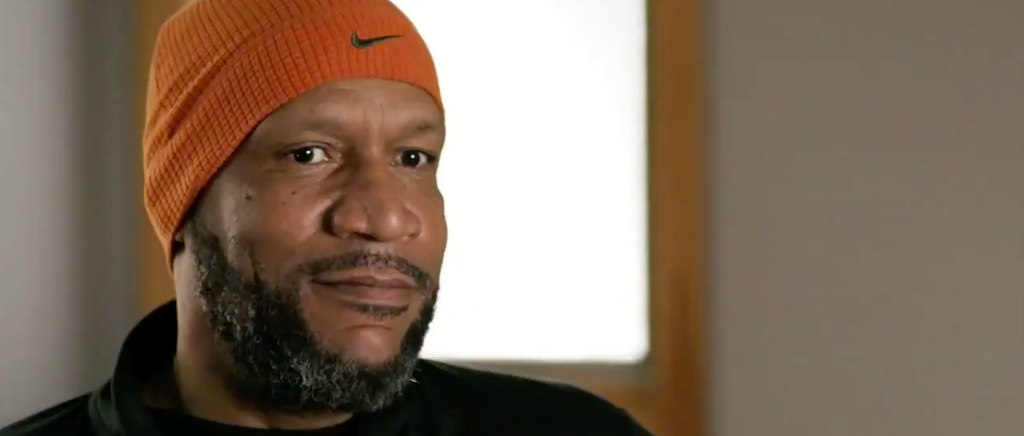
Just like he did in the Eastern Conference during the 1990s, Michael Jordan is burning a pathway through the NBA zeitgeist on a weekly basis through new episodes of The Last Dance. The latest debate to flare up online comes from former teammates Craig Ehlo and Ron Harper over what the game plan was for Jordan’s infamous series-winning jump shot in the first round of the 1989 playoffs.
Ehlo is cemented in history as the man whose arms are splayed up beneath Jordan, and who’s standing in stunned disbelief in snapshots of Jordan’s famous celebratory leap. According to Harper, though, that’s not how it should have gone.
In the third installment of The Last Dance, Harper, who would go on to become a teammate of Jordan’s for the titular 1997-98 season, argued that he asked Cleveland head coach Lenny Wilkens if he could defend Jordan on the final play of the game rather than Ehlo. When Wilkens turned him down, Harper responded with a concise “f*ck this bullsh*t.’”
But in a new interview with Chris Fedor of Cleveland.com, Ehlo says it was a “no-brainer” that he would guard Jordan in order to let Harper play help defense, which he was better at, and save his energy if the team needed him to shoot again the next time down the floor.
Then Ehlo takes it one step further: “Harp had never really talked about defense or guarding people. He wasn’t a bad defender, I will give him that much, but I think those years with the Bulls where he got those championships, he was definitely third or fourth fiddle, so all of a sudden he becomes this lockdown defender, apparently. I don’t really remember him during our time wanting to play defense that much. He kind of shocked me with those comments, saying he wanted to guard Michael.”
No one except the two men involved (and maybe Wilkens, who’d be fantastic to hear from on this) can know who said what in a playoff series 30-plus years ago. However, Ehlo had better length and mobility to contest what the Cavaliers knew would likely be a jumper, whereas Harper is more of a strongman on defense.
It’s easy for Harper to say now, based on how things played out, that he pleaded to defend Jordan all those years ago. But despite all the times this shot has been discussed by NBA fans since 1989, the question of whether it should have been Ehlo guarding Jordan never really comes up. That was his role on those Cavs teams, and it seems like maybe Harper’s frustration is what came through in The Last Dance, rather than a clear memory of history.

“My life is about joy, it’s about happiness,” Bill Walton tells me, seconds after I introduce myself.
So began my 45-minute phone conversation with my lifelong hoops hero in advance of his Intergalactic Bike for Humanity event, benefitting victims of coronavirus and frontline healthcare workers. The ride — which was taken solo or even on exercise bikes, rather than in a massive group last weekend — ended up raising $100,000 for various charities. In classic Walton fashion, it also raised a whole ton of good vibes.
Depending on when you were born, you might need a little clarity on who exactly Bill Walton is. Two time NBA champion? Yup. A real-life legend of the hardwood? Absolutely. A seven-foot-tall redheaded icon of the counterculture? That too. He’s also a man who once appeared on ESPN wearing an Uncle Sam costume and saying “Marijuana should not be a schedule one drug.” A true original if ever there was one.
Through it all, Walton has been something of a modern philosopher who teaches by example and leads through action, bringing himself back from health disasters (Back From the Dead, as his autobiography is titled) 20 times throughout his 67-year lifetime. So how is he spending his time during the quarantine? Is he just sitting in his teepee listening to Jerry Garcia? No. I mean yes, he’s still listening to Jerry. For sure. And probably visiting the teepee. But he’s also doing something. He’s helping the people who need help the most. Raising money through his foundation thanks to more than 1,500 riders from all over the world.
His philosophy, though he’s never outright said it, (Walton eschews boxes and labels the way jam bands eschew three-minute song structures) is one of aggressive gratitude.
“I’m the lucky one,” he repeats during the call. “Just think about how lucky I am in my own life to have the parents that I did have, the childhood that I did have, the coaches that I had, the teachers that I had, the teams that I played for, and heroes and role models that I chose.”
Walton laughs when speaking of his college coach — perhaps the most famous coach in any sport ever.
“I thought everybody had a John Wooden,” Walton says. “Then I turned 21, joined the NBA, and everything changed.”
Wooden was also unflaggingly positive and solution-oriented. The coach would surely appreciate how his most eccentric superstar has refused to take the world’s current crisis sitting down. Despite the fact that Walton has also been affected by COVID-19.
“Everything in my life on the public side has all evaporated,” Walton explains. “I had the honor and privilege of working for ESPN, the Pac-12 Network, and I’m out there a lot on the corporate circuit … all that is gone. The deviation, the evaporation, the countless millions of jobs that have been lost. But this is the 21st time that I’ve had to start over and the first and only time that I’ve been healthy. So I’m ready to go.”
Though his first virtual bike ride is over, the Bike for Humanity rides on. And there will be more rides and more opportunities to give in the future. Walton makes it clear that he sees this as a new part of his larger mission.
“I was not the type of basketball player who waited. I was not waiting for the ball, waiting for the game, I was ready to get going,” Walton says. “So I’m not waiting now. I’m ready to go. I’m doing something about it. Bike for Humanity.”
On our call, Feeding America, Father Joe’s Villages, and Champions for Health all get shoutouts from Walton as organizations that would benefit from the funds he raised. He also highlights #GetUsPPE — a nonprofit working to get supplies to the frontline workers who need them most.
“This might be the most serious and daunting opponent and challenge we’ve ever faced,” Walton says. “We have no idea how this is going to play out and so, being a man of action, I say we gotta do something. First, we’re looking to get the health care professionals the equipment they need. Imagine going to a basketball game and there not having a ball. Imagine me broadcasting a game and not having a mic!”
“Dave Pasch might enjoy that,” I say, referencing Walton’s straight-laced, often seemingly-annoyed play-by-play partner. “But the rest of us wouldn’t.”
“He’s welcome to join our team,” Walton responds with a gravely chuckle. “This is a group of volunteers. A grassroots campaign that believes in the power and value of sports. Really, it’s about service. And that element of ‘what we can do to help?’”
Honor. Communal sacrifice. Discipline. Old fashioned ideas that — like making a sourdough starter — seem to be circling back around in these challenging times.
I mention a conversation I had with my cousin who told me that the self-isolating with his family had made him aware that he wasn’t living right pre-COVID. He was working too much, for too many long hours, and not spending enough time with his family. Like he had blinders on. All that’s changed now. Later, I tell Walton I’ve taken the lyric from a song of Lukas Nelson as my mantra — when he said “turn off the news and build a garden.”
“I love Lukas,” Walton says. “I’ve had the pleasure of being with him in a very spiritual and casual setting and what a great job Willie has done with him, what a great guy.”
Later in the conversation — in which I ask exactly four questions total — Walton offers this gem: “What we learn from tragedy, what we learn for adversity is really the true definition of who we are is what happens when the ball bounces the other way. And it really has done that now, so as we try to build a better tomorrow we’re also seeing a lot of goodness out there. A lot of kindness.”
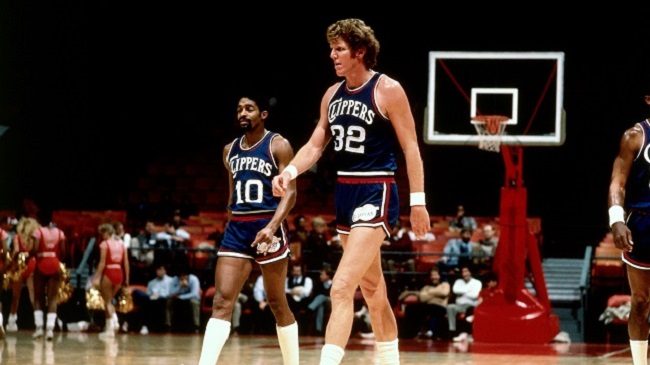
If Walton was looking for someone to be energized by his words about solidarity, community, and sacrifice, he found it in me. As I mentioned, Bill Walton is my inspiration. Literally. He inspired me to take Toni Morrison’s sage advice and write the book I wanted to read. A book genre that did not exist. A mystery thriller based on two college basketball announcers who seem to annoy the sh*t out of each other.
Yes, I’m talking about a book where basketball legend Bill Walton and his play-by-play partner Dave Pasch solve deadly serious mysteries. But in a funny, absurdist way. I called this mystery series, aptly, The Bill Walton Mysteries. Book one, Friend of the Devil, came out last year. Book two, Fire on the Mountain, was released the week that the NBA season was canceled.
At some point in our conversation, I know I have to share this information.
“To be clear Bill, I am the guy who spent the last two years writing two mystery books starring you and Dave Pasch.” I say, as we discuss John Wooden. “I don’t know if you’ve heard about them or not.”
“I have heard and I am flattered and honored,” Walton responds, giving my life its creative highpoint in just a few words.
Emboldened and drawn to connect the threads that we’d been discussing back to the larger pandemic, I ask Walton how he deals with fear.
“I have learned, over the course of the last 50 years, that when you’re afraid, when you’re scared, that is an emotion of what you’re thinking and feeling,” Walton says. “And our bravery, our courage, our confidence comes from work. From activity and action. So when I wake up in the middle of the night and I’m just sitting there waiting and waiting and I’m starting to get scared and I lose my confidence. Get to work. Get up and do something! I always look for a possibility where I can make a positive contribution, where I can help move the world forward to a better place, and then I’m always trying to live a life in service to others. So when COVID-19 decimated the world, I looked back toward the path that I’ve used, in all my times starting over.”
“What’s that?” I ask.
“One, what’s the goal?” he says. “Identify the goal, the dream, the vision. Two, pick a teacher, pick a leader. Three, join a team. Four, immerse yourself in the culture of the team. Five, build your personal foundation and then live a life of honor, sacrifice, and discipline because that’s what makes a group’s work successful.”
Honor. Sacrifice. Discipline. Exactly the qualities that I saw in him that I felt would make him a great detective.
As for the virtual playlist on his bike ride, Walton gives an appropriately Bill Walton answer.
“I know the healing power of music,” Walton says. “I listen to music all the time, I have a gigantic collection and it’s on all my devices and wherever I am it’s always on shuffle. It’s amazing how the shuffle … which is just a thing. But the shuffle knows. Shuffle knows what you need.”
“And there’s so much sadness right now, and none of us got to say goodbye or thank you to John Prine, but the shuffle knows and the shuffle goes,” Walton adds, “and when it gets to the one that it wants me to hear sometimes I’ll just push repeat and it kind drives my wife nuts because I’ll leave it on repeat for sometimes three or four days, some times a week, sometimes a couple weeks. And the last one that I had on repeat was Jerry. Singing ‘Like A Road Leading Home.’ I can find it if you‘ve got a minute, unless you have to be somewhere.”
He plays the song over the phone. And recites the lyrics slowly, like a prayer or a benediction.
When the road gets too long
And you run all out of song
The pain gets too much
For you to bear
Turn around, turn around
Turn around and I’ll be there
Like a road, like a road leading home
When the gray clouds start to blow
You need someplace to go
When you want some company
That really cares
Turn around, turn around
Like a road, like a road leading home
Like a road, like a road leading home …
“I’m the luckiest guy in the world,” Walton says as the eight-minute song winds down. And then, a few minutes later, “We will get by, we will survive, we are Bike for Humanity.”
Perhaps it was listening to my hero listen to his hero or Walton’s overall warmth and service-based nature, but I left the call believing in the power of the positivity he passed my way. And felt like it could perhaps help heal us. Like it might help lead us home.
Ramy, the critically acclaimed Muslim-American comedy series from Hulu (produced by A24), is gearing up for what looks to be another incredibly poignant (and hopefully sweet!) second season. And as with the second season of Fleabag, I’m sensing that there might be audience thirst brewing for another holy man (this time, a sheikh, rather than a “hot priest”) who’s doling out a prescription for “discipline” in this trailer.
Academy Award-winning actor Mahershala Ali joins the cast as the new spiritual advisor to the title character (portrayed by Golden Globe-winning, actor Ramy Youssef), who continues on his spiritual journey to, hopefully, find a greater commitment to his faith. Naturally, we should also expect Ramy’s love life to rear its head again, given that the show often embraces horniness, all while Ramy attempts to find a manageable balance between his status as a 28-year-old millennial man and the tenets of his religion. The series, of course, draws a lot of inspiration from Youssef’s own experiences to bring him onto the screen as Egyptian-American character Ramy Hassan, whose politically-divided New Jersey community tends to generate some friction. In turn, the show succeeds at balancing its comedic and dramatic sides to rightfully claim a dramedy status.
Ramy (also featuring Mohammed Amer, Hiam Abbass, Amr Waked, May Calamawy, Dave Merheje, Laith Nakli, and Steve Way) returns to Hulu with a full season on May 29.
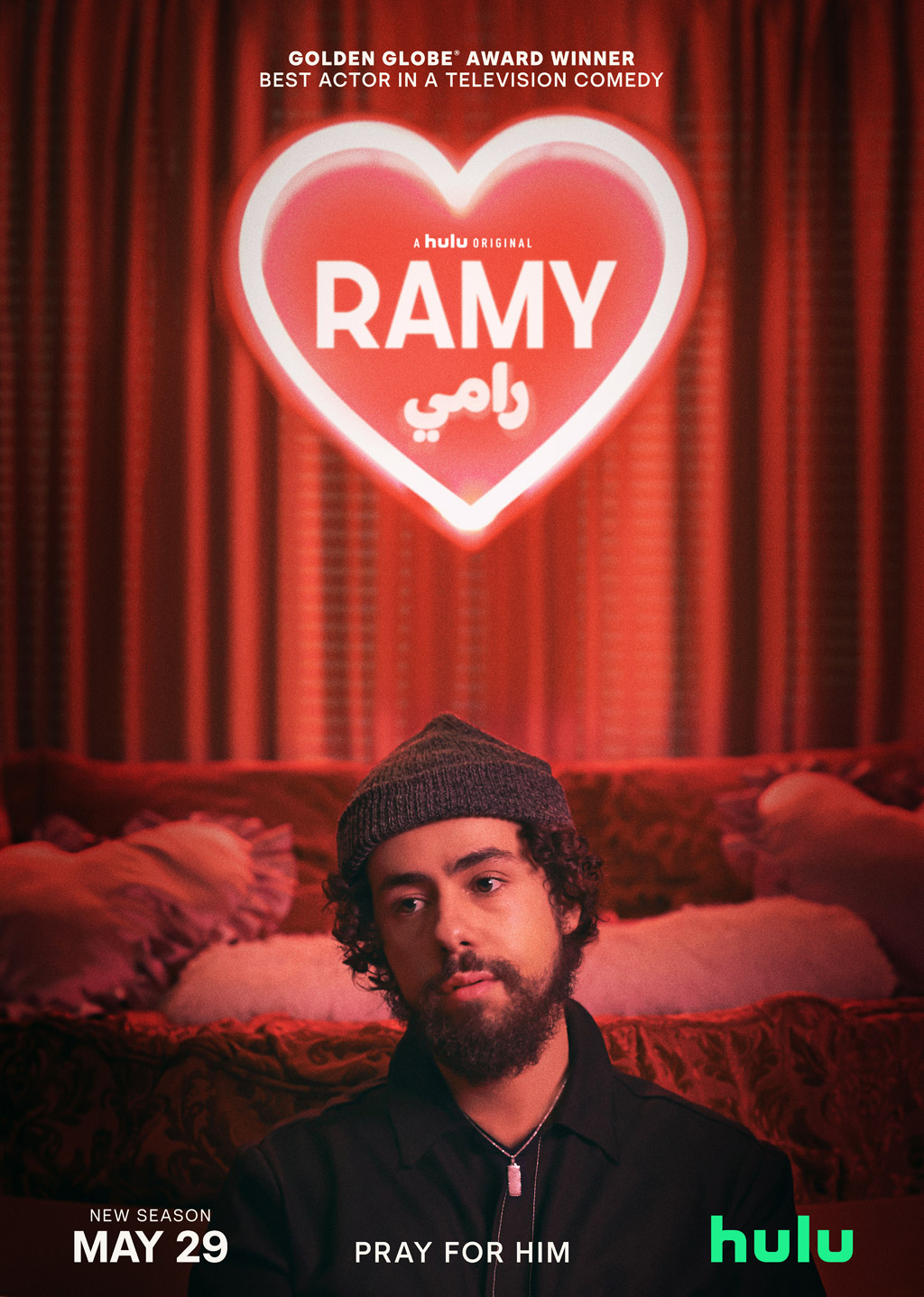
Back in February, the experimental producer Arca triggered a new era by releasing an hour-long song titled “@@@@@.” Though the lengthy effort won’t appear on her upcoming album, Kick I, it sets the tone for Arca’s unconventional style of music. Now, the acclaimed producer previews her record’s release with the serrated single, “Nonbinary.”
Accompanied by an unsettling visual that touts a transgressive re-imagining of The Birth Of Venus, “Nonbinary” features blown-out bass while Arca delivers her prose with a metallic cadence. “Who do you think I am? / It’s not who do you think you’re dealing with, no / Cuz you’re not ‘dealing with’ / There’s no deal,” she recites.
Recently speaking to Paper Magazine, Arca detailed her inspiration behind the single: “I’m asking for recognition that we have multiple selves without denying that there’s a singular unit. I want to be seen as an ecosystem of minor self-states without being stripped of the dignity of being a whole. It gives me the feeling of possibility, to not allow for easy categorization. I wouldn’t want to just go pop and I wouldn’t want to go full experimentalist. That’s where a nonbinary mode of thinking feels really fertile. It opens possibilities rather than collapsing things. Allowing for change without resisting it.”
Kick I will arrive following three albums and several mixtapes by the producer. Along with an expansive discography, Arca has produced music for the likes of Björk, Kanye West, and FKA Twigs as well as penned a composition for the MoMA. More recently, Arca was the host of Frank Ocean’s PrEP+ dance party in NYC where he first debuted new music.
Watch Arca’s “Nonbinary” video above.

